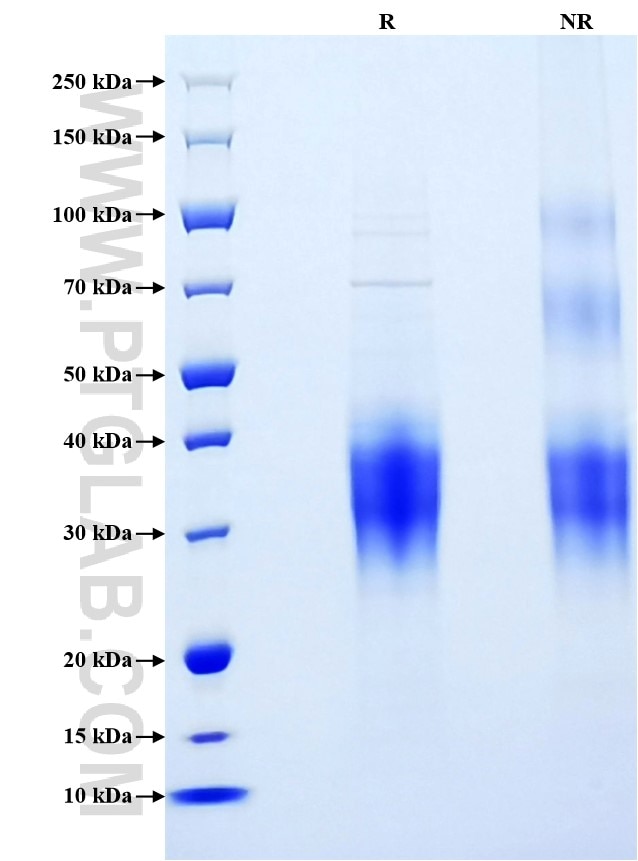Recombinant Mouse CD30 Ligand/TNFSF8 protein (His Tag)
Species
Mouse
Purity
>90 %, SDS-PAGE
Tag
His Tag
Activity
not tested
Cat no : Eg0667
Validation Data Gallery
Product Information
| Purity | >90 %, SDS-PAGE |
| Endotoxin | <0.1 EU/μg protein, LAL method |
| Activity |
Not tested |
| Expression | HEK293-derived Mouse CD30 Ligand protein Gln68-Asp239 (Accession# P32972) with a His tag at the N-terminus. |
| GeneID | 21949 |
| Accession | P32972 |
| PredictedSize | 20.5 kDa |
| SDS-PAGE | 27-42 kDa, reducing (R) conditions |
| Formulation | Lyophilized from 0.22 μm filtered solution in PBS, pH 7.4. Normally 5% trehalose and 5% mannitol are added as protectants before lyophilization. |
| Reconstitution | Briefly centrifuge the tube before opening. Reconstitute at 0.1-0.5 mg/mL in sterile water. |
| Storage Conditions |
It is recommended that the protein be aliquoted for optimal storage. Avoid repeated freeze-thaw cycles.
|
| Shipping | The product is shipped at ambient temperature. Upon receipt, store it immediately at the recommended temperature. |
Background
TNFSF8, also named as CD30LG and CD153, is a member of the tumor necrosis factor (TNF) receptor superfamily. It is the cytokine that binds to TNFRSF8/CD30. It induces proliferation of T-cells. CD30L enhanced the proliferation of CD3-activated T cells, but induced differential responses, including cell death, in several CD30-positive lymphoma-derived cell lines.
References:
1. Ezogelin Oflazoglu, Iqbal S Grewal, Hanspeter Gerber. (2009) Adv Exp Med Biol. 647:174-85. 2. Nancy D Marín, Luis F García. (2017) Tuberculosis (Edinb). Jan:102:8-15. 3. Jin Duan, Yaxian Gao. (2019) Int Immunopharmacol. Jun:71:350-360.
